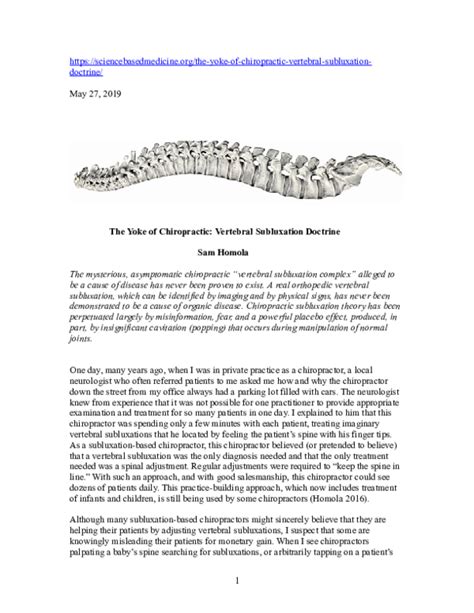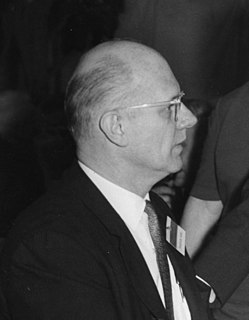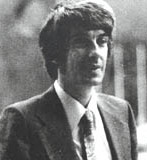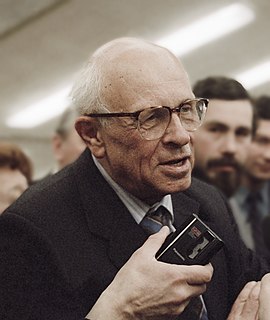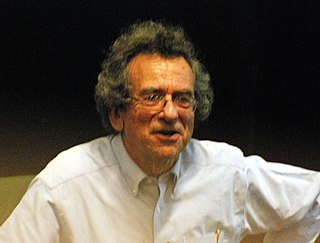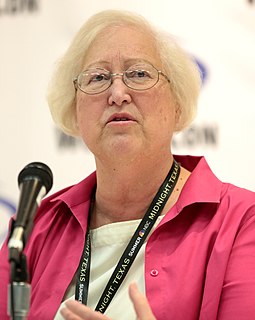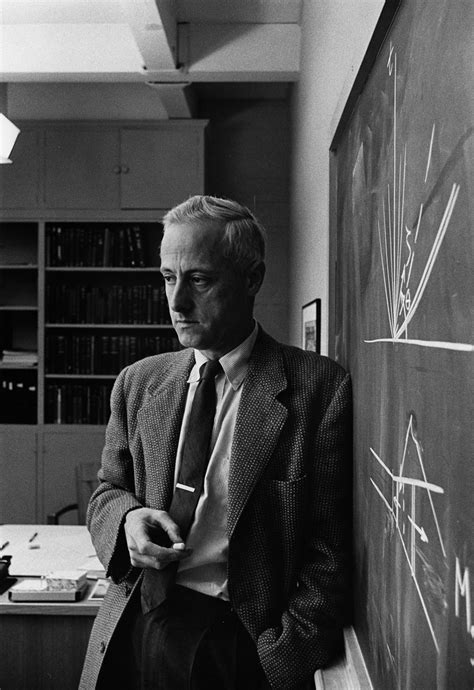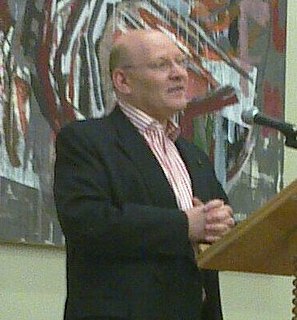Top 1200 Scientific Quotes & Sayings - Page 3
Explore popular Scientific quotes.
Last updated on November 9, 2024.
The history of scientific and technical discovery teaches us that the human race is poor in independent and creative imagination. Even when the external and scientific requirements for the birth of an idea have long been there, it generally needs an external stimulus to make it actually happen; man has, so to speak, to stumble right up against the thing before the idea comes.
I am a big fan of Neil DeGrasse Tyson. He's the voice of science and scientific thinking in the United States and the world. He's the most visible proponent of scientific thinking, and he's very unflinching about it. He knows that it's correct and vouches for it in a very intelligent and very firm way, which I really appreciate.
A system is empirical or scientific only if it is capable of being tested by experience. These considerations suggest that not the verifiability but the falsifiability of a system is to be taken as a criterion of demarcation... It must be possible for an empirical or scientific system to be refuted by experience.
The popularisation of scientific doctrines is producing as great an alteration in the mental state of society as the material applications of science are effecting in its outward life. Such indeed is the respect paid to science, that the most absurd opinions may become current, provided they are expressed in language, the sound of which recals [sic] some well-known scientific phrase.
Neither logic nor scientific evidence supports such a belief. Although spinal manipulation can relieve certain types of back pain, neck pain, and other musculoskeletal symptoms, there is no scientific evidence that it can restore or maintain health. As a result of expressing my opinion on this subject, I have been called a chiropractic heretic.
Scientific culture created a framework within which individual mobility was possible without threatening hierarchical work-force allocation. On the contrary, meritocracy reinforced hierarchy. Finally, meritocracy as an operation and scientific culture as an ideology created veils that hindered perception of the underlying operations of historical capitalism.
Hitherto the principle of causality was universally accepted as an indispensable postulate of scientific research, but now we are told by some physicists that it must be thrown overboard. The fact that such an extraordinary opinion should be expressed in responsible scientific quarters is widely taken to be significant of the all-round unreliability of human knowledge. This indeed is a very serious situation.
The true scientific understanding of the nature of existence is so utterly fascinating; how could you not want people to share it? Carl Sagan, I think, said 'when you're in love, you want to tell the world.' And who, on understanding a scientific view of reality, would not, as it were, fall in love and want to tell the world.
Remember that [scientific thought] is the guide of action; that the truth which it arrives at is not that which we can ideally contemplate without error, but that which we may act upon without fear; and you cannot fail to see that scientific thought is not an accompaniment or condition of human progress, but human progress itself.
The new advocates of ID [Intelligent Design] ask that their ideas be judged by scientific, not religious, criteria. OK, let's see how well ID stacks up as a scientific alternative to Darwinism. To gauge how well ID is doing as a platform for scientific research, I logged into the best database of the biological literature. A search for keyword ''evolution'' yielded 24,000 hits in the last decade. A search for ''intelligent design'' yielded not a single piece of research. Evolution by natural selection remains the basis of every successful biological research program.
Almost all major scientific projects today are huge collaborations, yet we still have this public obsession with the idea of the individual scientific genius. One of my goals as a science communicator is to celebrate the collaborative dimensions of science, which I think will be critical for facing the ecological and resource challenges ahead. In a sense, we are all corals now.
We must work passionately and indefatigably to bridge the gulf between our scientific progress and our moral progress. One of the great problems of mankind is that we suffer from a poverty of the spirit which stands in glaring contrast to our scientific and technological abundance. The richer we have become materially, the poorer we have become morally and spiritually.
Trouble arises when either science or religion claims universal jurisdiction, when either religious dogma or scientific dogma claims to be infallible. Religious creationists and scientific materialists are equally dogmatic and insensitive. By their arrogance they bring both science and religion into disrepute.
A rare book at once of great importance and wonderful to read.... Gould presents a fascinating historical study of scientific racism, tracing it through monogeny and polygeny, phrenology , recapitulation, and hereditarian IQ theory. He stops at each point to illustrate both the logical inconsistencies of the theories and the prejudicially motivated, albeit unintentional, misuse of data in each case.... A major addition to the scientific literature.
[In] the realm of science, ... what we have achieved will be obsolete in ten, twenty or fifty years. That is the fate, indeed, that is the very meaning of scientific work. ... Every scientific "fulfillment" raises new "questions" and cries out to be surpassed rendered obsolete. Everyone who wishes to serve science has to resign himself to this.
The fact that these scientific theories have a fine track record of successful prediction and explanation speaks for itself. (Which is not to say that I don't directly discuss the work of those philosophers who would disagree.) But even if we grant this, many will argue that scientific knowledge in humans, and, indeed, reflective knowledge in general, is quite different in kind from the knowledge we see in other animals.
I have characterized Ross as exemplifying an extreme position among theistic scientists. However, he is not so extreme as to promote the scientifically unsound notions of the young-Earth creationists and other anti-evolutionists ... They are so far off the scale that their scientific claims need not be taken seriously. Their distortions and misrepresentations of the scientific facts are not consistent with their self-righteous claims of acting to protect all that is good and moral.
It required unusual inquisitiveness to pursue the development of scientific curiosities such as charged pith balls, the voltaic cell, and the electrostatic machine. Without such endeavors and the evolution of associated instrumentation, initially of purely scientific interest, most of the investigations that lead to the basic equations of electromagnetism would have been missed. ... We would have been deprived of electromagnetic machinery as well as knowledge of electromagnetic waves.
I was a reasonably good student in college ... My chief interests were scientific. When I entered college, I was devoted to out-of-doors natural history, and my ambition was to be a scientific man of the Audubon, or Wilson, or Baird, or Coues type-a man like Hart Merriam, or Frank Chapman, or Hornaday, to-day.
No fossil is buried with its birth certificate. That, and the scarcity of fossils, means that it is effectively impossible to link fossils into chains of cause and effect in any valid way... To take a line of fossils and claim that they represent a lineage is not a scientific hypothesis that can be tested, but an assertion that carries the same validity as a bedtime story-amusing, perhaps even instructive, but not scientific.
The tragedy of young-earth creationism is that it takes a relatively recent and extreme view of Genesis, applies to it an unjustified scientific gloss, and then asks sincere and well-meaning seekers to swallow this whole, despite the massive discordance with decades of scientific evidence from multiple disciplines. Is it any wonder that many sadly turn away from faith concluding that they cannot believe in a God who asks for an abandonment of logic and reason?
It is high time that laymen abandoned the misleading belief that scientific enquiry is a cold dispassionate enterprise, bleached of imaginative qualities, and that a scientist is a man who turns the handle of discovery; for at every level of endeavour scientific research is a passionate undertaking and the Promotion of Natural Knowledge depends above all on a sortee into what can be imagined but is not yet known.
In the 1980s a small group of individuals became concerned about the Earth's temperature and what it might do in the future. I hesitate to call them scientists because they have abandoned their scientific principals by which their guess about temperature increases and the cause could achieve scientific acceptance or rejection.
The feeling of understanding is as private as the feeling of pain. The act of understanding is at the heart of all scientific activity; without it any ostensibly scientific activity is as sterile as that of a high school student substituting numbers into a formula. For this reason, science, when I push the analysis back as far as I can, must be private.
As the popular trust in science fades - and many sociologists say that's happening today - people will develop a distrust of purely "scientific" psychology. Researchers in the universities haven't picked up on this; they're more interested in genetics and computer models of thinking than ever. But, in general, there is a huge distrust of the scientific establishment now.
Britain could contribute huge value to the world by leveraging existing assets, including scientific talent and how the NHS is structured, to push the frontiers of a rapidly evolving scientific field - genomic prediction - that is revolutionising healthcare in ways that give Britain some natural advantages over Europe and America.
I wish there was a serious investigation into flying saucers that wasn't conducted by crackpots. Unfortunately nearly all of the people who are interested in them kind of manufacture the evidence to fit the theories rather than the other way around. So it's very hard to find any dispassionate treatment of them. Maybe there isn't any scientific basis in which case that's why you never see any scientific evidence.
One of the greatest accomplishments of Western civilization is the development of the scientific method and the scientific disposition, which entail the development of falsifiable hypotheses about the world and the unwillingness to take unverified and untheorized claims about the world as truth, simply because someone states that they are true.
The 'medical examination' to which abductees are said to be subjected, often accompanied by sadistic sexual manipulation, is reminiscient of the medieval tales of encounters with demons. It makes no sense in a sophisticated or technical framework: any intelligent being equipped with the scientific marvels that UFOs possess would be in a position to achieve any of these alleged scientific objectives in a shorter time and with fewer risks.
Scientific evidence for God's existence is being claimed today by theists, many of whom carry respectable scientific or philosophical credentials. He who is neither a she nor an it supposedly answers prayers and otherwise dramatically affects the outcome of events. If these consequences are as significant as believers say, then the effects should be detectable in properly controlled experiments.
Often, some people dress something up to make it sound scientific, use scientific words, call themselves doctor something-or-other, and then you look them up, and they're trying to make it sound like something it's not. There's this entire field that's adding the word 'quantum' to everything. It doesn't even make sense in that context.
We regard as 'scientific' a method based on deep analysis of facts, theories, and views, presupposing unprejudiced, unfearing open discussion and conclusions. The complexity and diversity of all the phenomena of modern life, the great possibilities and dangers linked with the scientific-technical revolution and with a number of social tendencies demand precisely such an approach, as has been acknowledged in a number of official statements.
But I should be very sorry if an interpretation founded on a most conjectural scientific hypothesis were to get fastened to the text in Genesis... The rate of change of scientific hypothesis is naturally much more rapid than that of Biblical interpretations, so that if an interpretation is founded on such an hypothesis, it may help to keep the hypothesis above ground long after it ought to be buried and forgotten.
Over the past fifty years or so, scientists have allowed the conventions of expression available to them to become entirely too confining, too confining. The insistence on bland impersonality and the widespread indifference to anything like the display of a unique human author in scientific exposition, have transformed the reading of most scientific papers into an act of tedious drudgery.
Certainly I see the scientific view of the world as incompatible with religion, but that is not what is interesting about it. It is also incompatible with magic, but that also is not worth stressing. What is interesting about the scientific world view is that it is true, inspiring, remarkable and that it unites a whole lot of phenomena under a single heading.
As soon as I suspect a fine effect is being achieved by accident I lose interest. I am not interested...in unskilled labor. ...The scientific actor is an even worker. Any one may achieve on some rare occasion an outburst of genuine feeling, a gesture of imperishable beauty, a ringing accent of truth; but your scientific actor knows how he did it. He can repeat it again and again and again. He can be depended on.
Many people have the impression that there is significant scientific disagreement about global climate change. It's time to lay that misapprehension to rest. There is a scientific consensus on the fact that Earth's climate is heating up and human activities are part of the reason. We need to stop repeating nonsense about the uncertainty of global warming and start talking seriously about the right approach to address it.
I conceive that the leading characteristic of the nineteenth century has been the rapid growth of the scientific spirit, the consequent application of scientific methods of investigation to all the problems with which the human mind is occupied, and the correlative rejection of traditional beliefs which have proved their incompetence to bear such investigation.
I am not afraid of the priests in the long-run. Scientific method is the white ant which will slowly but surely destroy their fortifications. And the importance of scientific method in modern practical life--always growing and increasing--is the guarantee for the gradual emancipation of the ignorant upper and lower classes, the former of whom especially are the strength of the priests.
Don't they know science doesn't work like that? You can't just order scientific breakthroughs. They happen when you are looking at something you've been working on for years and suddenly see a connection you never noticed before, or when you're looking for something else altogether. Sometimes they even happen by accident. Don't they know you can't get a scientific breakthrough just because you want one?
There are two ways of forming an opinion. One is the scientific method; the other, the scholastic. To the scientific mind, experimental proof is all-important, and theory is merely a convenience in description, to be junked when it no longer fits. To the academic mind, authority is everything, and facts are junked when they do not fit theory.
We must not forget that when radium was discovered no one knew that it would prove useful in hospitals. The work was one of pure science. And this is a proof that scientific work must not be considered from the point of view of the direct usefulness of it. It must be done for itself, for the beauty of science, and then there is always the chance that a scientific discovery may become like the radium a benefit for humanity.
Of course, the laws of science contain no matter and have no energy either and therefore do not exist except in people's minds. It's best to be completely scientific about the whole thing and refuse to believe in either ghosts or the laws of science. That way you're safe. That doesn't leave you very much to believe in, but that's scientific too.
Aeroplanes are not designed by science, but by art in spite of some pretence and humbug to the contrary. I do not mean to suggest that engineering can do without science, on the contrary, it stands on scientific foundations, but there is a big gap between scientific research and the engineering product which has to be bridged by the art of the engineer.
The routine of custom tends to deaden even scientific inquiry; it stands in the way of discovery and of the active scientific worker. For discovery and inquiry are synonymous as an occupation. Science is a pursuit, not a coming into possession of the immutable; new theories as points of view are more prized than discoveries that quantitatively increase the store on hand.
All the classical meditation traditions, in one way or another, stress nonattachment to the self as a goal of practice. Oddly, this dimension is largely ignored in scientific research, which tends to focus on health and other such benefits. I suppose the difference has to do with the contrast in views of the self from the spiritual and scientific perspectives. Scientists value the self; spiritual traditions have another perspective.
In scientific thought, the concept functions all the better for being cut off from all background images. In its full exercise, the scientific concept is free from all the delays of its genetic evolution, an evolution which is consequently explained by simple psychology. The virility of knowledge increases with each conquest of the constructive abstraction.
The battle over the validity of evolution has been publicly posed as a scientific one. However, you will find little sign of it in scientific journals, where such quarrels as exist are over details, not the basic concept... Evolution has proved so useful as a paradigm for the origin and structure of life that it constitutes the foundation of the sciences of biology and medicine.
The reality is that while heliocentrism was discussed and often accepted within Catholic circles - it was effectively the only place where it could be - the more traditional view of the solar system still prevailed even among leading scientists. So it's hardly surprising that Galileo's Catholic judges had difficult accepting his views, especially when they saw themselves as defending scientific orthodoxy and were supported in this by the scientific establishment.




